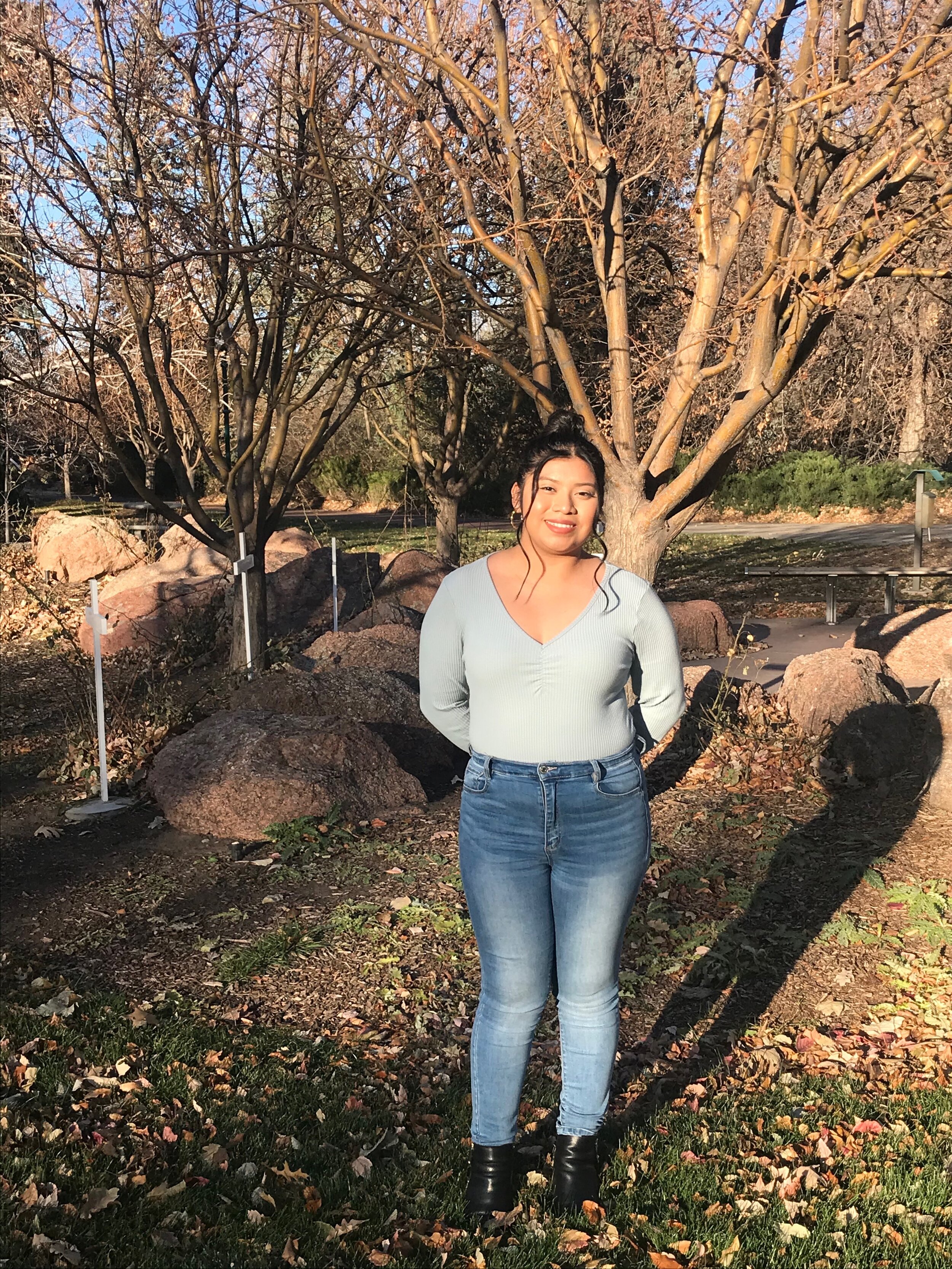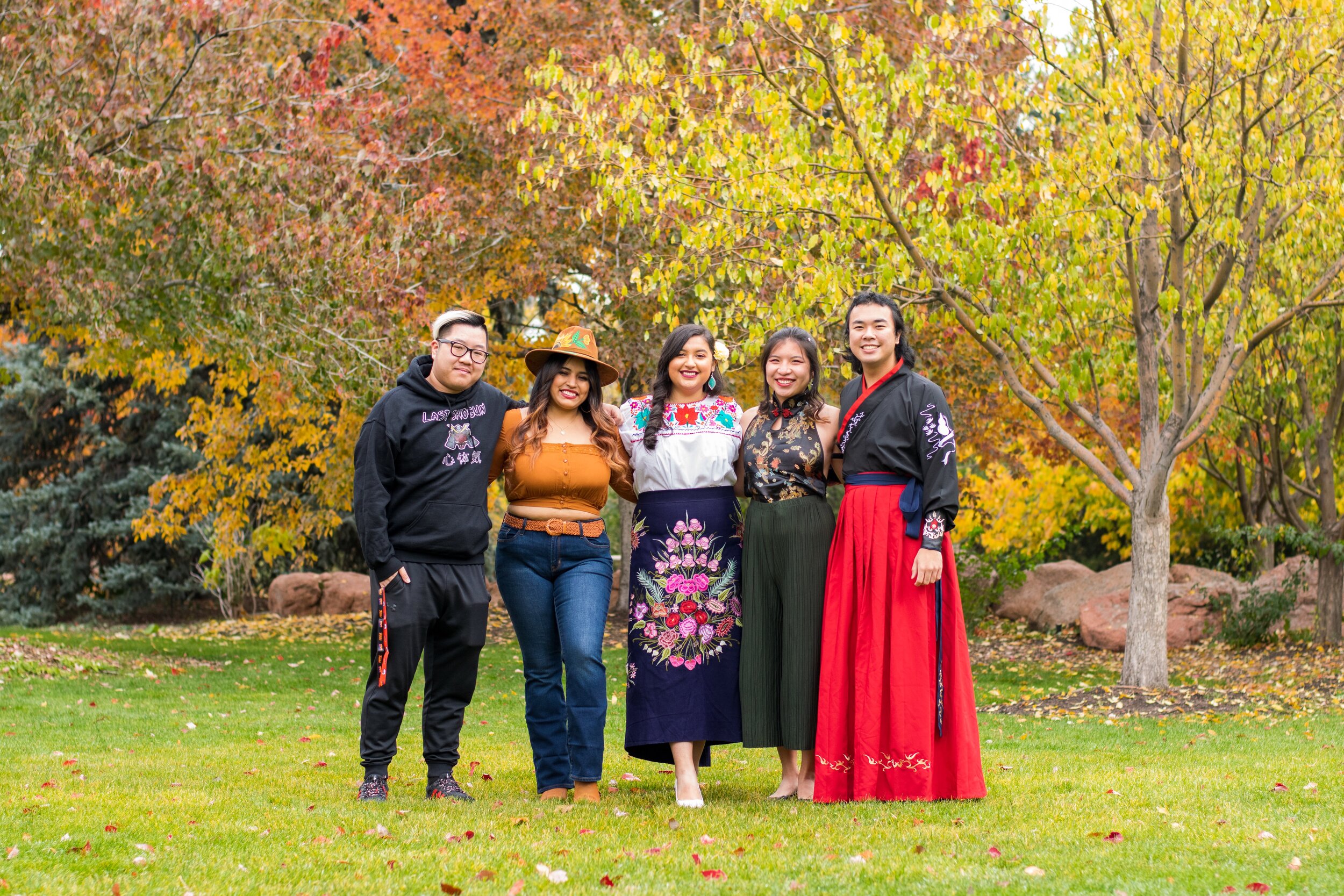By: Carly Compesi, Staff Writer
Carly: Why do you find this project important?
Kayla: I would say I find this project important because I think there’s not enough representation here at Regis. I think we need more of it and I think being able to unite all of us affinity clubs and being able to represent all of them is what matters.
Monse: I would say this magazine was important to allow people to represent who they are and what they think makes them them. And seeing people light up after they [have] their pictures taken, when they were trying to get approval from the photographer, and then them getting more into it and striking different poses and stuff just shows what this magazine is about. It’s just focusing on the individual and who they are, and that’s what Regis is made of.
Carly: Nice. And you two are dressed up. Do you want to talk a little about why you choose what you choose?
Monse: So for me, it’s a little weird ‘cause my family is from Mexico and Mexico is very big and has very different traditions, and so, with a lot of Hispanics, especially from Mexico (like the ones being represented in the magazine), I was going to go with the traditional route at first since my family is from Mexico City. But then, I decided to go with more ranchero style—which is like “Western” when translated in English—just to make sure that every part of Mexico is represented, because I know people are from there and I wanted their clothing to be shown as well.
Kayla: Yeah, so I came in traditional Mexican clothing, but one of the things that I found really cool about my outfit was the Virgen de Guadalupe. She plays a really big role in Mexican culture and I would say that, usually, if you grown up Latinx, you also grow up being some part of a religion—mostly Christianity or Catholicism—so being able to have her as a part of my outfit really brought a lot of representation to people within the Latinx community, and within my family as well.
Carly: So what are your goals for this magazine? Or what are your goals for the future, since I know you want this to be continuous?
Monse: I guess my goal for this one [magazine] is to, like Kayla said, show what Regis is made up of because, sometimes, the diversity gets hidden within the crowd and this just allows people to see all the different types of individuals we have at Regis, and how everyone is special and unique and beautiful in their own way.
Kayla: Yeah. And I would agree with Monse, and then I would say that, [a goal] for the future would be to get more people to come out and represent who they are and be excited about that and hold pride in it. We hope to [make it] a tradition and allow more people to be involved every year, and for them not to be shy and afraid but for them to have pride about where they come from and who they are.
Carly: Hold on. Celine, there’s a question I just remembered to ask you. Why fashion? Why is fashion the premise?
Celine: Well, initially, we tried a fashion show just to make it a more “live” type of thing, but with COVID, we couldn’t do that, so we had to adjust it to be a magazine. But I think fashion—you’re not necessarily saying it yourself but you’re conveying it through what makes you you. Fashion for everybody is different and incorporating your culture, your heritage, your religion, any sexual orientation, or any symbol that you want—you could do that through fashion. So you’re not necessarily stating it. It’s [stated] through, I guess, two perspectives: one, what you’re representing, and two, through how you go about your normal days, because everyone wears different clothes. Monse has a completely different style than me. Kayla has a different style. I feel like we all have different styles. Representing that through fashion seemed fun.
Carly (to Monse and Kayla): You have anything you want to add to that?
Monse: I think Celine said it very well. I think it allowed people the opportunity to dress a way they would like to dress every day but it’s just unconventional—it’s just not realistic with the weather and things like that, so this allowed them to wear what they would wear once every year.
Kayla: Yeah. I think one thing I would add would be that I think it’s really cool how, depending on where you’re from, like Celine was saying, Monse and I have completely different styles, and depending on where you’re from, everyone else has different styles as well, so I think that’s really cool, and being able to represent that is pretty awesome.
Carly: And then I asked Celine already: What would you say to people who were interested in participating, especially if they’re on the fence or don’t know what to wear?
Monse: I would say that this is just [an opportunity] to be yourself. Like I had a lot of people be like, “Well, I don’t know. I don’t have anything traditional.” And I told them, “Just wear what makes you you, like what you think represents you.” And honestly, this is just something fun for you to remember your time here at Regis and who you were. It’s supposed to be something fun, and so you do you.
Kayla: Exactly, yeah. I would totally agree with Monse. You do you, Be who you are. Of course, it’s nice to come out and represent something bigger than yourself, right? But it’s something that’s fun. You can be part of history, pretty much. It’s our first year and we’re going to continue with it, and then, you can always come back, look at it, remember those memories and show that pride.





